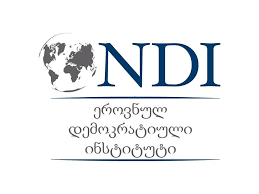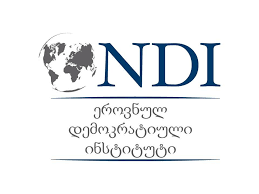NDI Georgia Election Watch
The National Democratic Institute (NDI or the Institute) offers this analysis of the environment and procedures surrounding Georgia’s October 31, 2020 parliamentary elections with the aim of supporting a peaceful, credible process. NDI’s analysis is being conducted in accordance with the Declaration of Principles for International Election Observation and in light of constraints imposed by the global covid-19 pandemic, which precluded deployment of additional international personnel to Georgia. NDI, therefore, adapted its methodology to accommodate intensive remote engagement in addition to its activities on the ground. This analysis is based on in-depth virtual interviews conducted October 22 - 31 with representatives of the Georgian government, political parties, the electoral administration, civil society, the media, domestic and international observer organizations, and the diplomatic community; input from a team of long-term analysts who have virtually monitored the electoral framework and administration, the campaign environment, the role of media and disinformation, gender and inclusion, and the impact of covid-19 since September 15; and the Institute’s expertise and relationships developed over 25 years of programming in Georgia. NDI’s assessment of election-day procedures, in particular, reflects the findings of credible nonpartisan citizen monitors who were deployed throughout the country on October 31. This analysis builds on NDI Georgia Election Watch reports issued on August 19, October 9, and October 20, 2020.
Summary
Irregularities in results protocols, widespread reports of potentially intimidating behavior in or around polling stations, delays in the publication of results, and persistent perceptions of pre-election abuses of power detracted from notable improvements in the legal framework and administrative procedures for Georgia’s October 31, 2020 parliamentary elections. As the results of the first round are finalized and the country heads to run-off elections on November 21, government leaders and election authorities will need to take extraordinary steps to ensure public confidence in the overall process and final results. Election day voting proceeded mostly in compliance with the rules prescribed by law. According to the Central Election Commission’s (CEC) preliminary results, turnout was 56.11% and nine parties crossed the threshold for proportional representation, while 16 of 30 majoritarian seats will go to runoffs.
However, credible international as well as domestic observer groups highlighted irregularities related to results protocols and vote secrecy, among other issues. They reported instances of physical confrontations outside of polling stations, obstruction of the work of journalists and observers, allegations of vote buying and vote rigging, and the intimidating presence of party coordinators and activists outside most polling stations. Following election day, opposition activists held large protest rallies, many calling for recounts, or even invalidation of results and repeat elections. Overall, the legal framework provided a sound basis for the conduct of the elections. The majority of NDI’s interlocutors positively assessed a package of constitutional reforms and legislative amendments passed in June and July, while noting issues that remained unaddressed. The administration of pre-election procedures was generally assessed as competent, legally compliant and transparent, but opposition parties and civil society organizations (CSOs) consistently raised complaints about excessive partisanship, particularly on lower-level commissions. Most stakeholders positively assessed measures to safeguard public health under conditions of the covid-19 pandemic, with some notable exceptions. Low public confidence in Georgia’s judicial system fed into civil society and opposition party mistrust in the electoral complaints and appeals processes. The ruling Georgian Dream party (GD) had access to the vast preponderance of financial resources, reinforcing longstanding concerns about the integrity of campaign and party financing frameworks.
The campaign was open and pluralistic, although tensions and incendiary attacks increased as election day approached. Parties, CSOs, and media outlets reported multiple incidents of violence and intimidation during the campaign period. Allegations of abuses of state resources were widespread. There were also significant numbers of reports of voter bribery. The changes to the electoral framework encouraged new parties to run, several of which won seats. However, parties had uneven access to coverage on television, due to media polarization. Campaign messaging focused more on criticizing opponents than putting forth constructive and distinctive policy solutions. The pandemic impacted campaign strategies less than anticipated. Georgia has taken significant steps toward promoting greater inclusion and diversity in politics, most notably a new gender quota. The new parliament will likely include at least 28 women, a slight increase from the current number. Despite this progress, women, ethnic and religious minorities, persons with disabilities and members of the LGBTI+ community remain underrepresented in the new parliament, as well as in party organizations and their platforms. The media landscape is diverse and outspoken but divided along partisan lines, resulting in biased coverage, and impeding voters’ ability to make informed choices. There were multiple reports of violence or threats of violence targeting journalists. Due to limited candidate participation, televised debates did not live up to their potential to inform voters and distinguish contestants from one another. Information manipulation was widespread, particularly on online platforms such as Facebook. Domestically-generated falsifications appeared to be a larger problem than disinformation from abroad.
"This report is preliminary in nature. The official results are yet to be finalized, electoral complaints are yet to be lodged and adjudicated, and the results of runoffs will not be known for at least three weeks. The people of Georgia will ultimately determine the credibility and legitimacy of their elections. NDI will continue to monitor electoral developments and will issue further analysis, if needed," reads the report by NDI.












